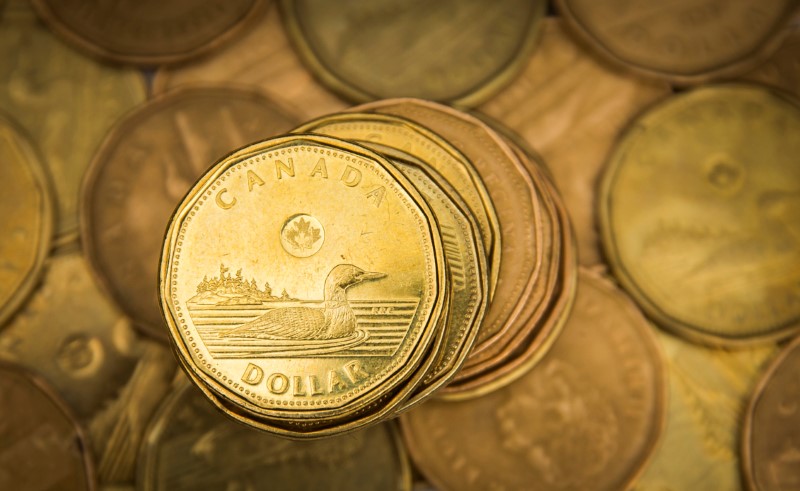* Canadian dollar at C$1.2831, or 77.94 U.S. cents
* Loonie touches its weakest level since April 3 at C$1.2860
* Bond prices mixed across the yield curve
TORONTO, April 24 (Reuters) - The Canadian dollar edged higher against its U.S. counterpart on Tuesday after hitting a three-week low, as oil prices held near three-year highs and the greenback consolidated its recent gains.
The U.S. dollar .DXY was little changed against a basket of major currencies. It had climbed earlier in the day to its highest in more than three months, supported by the recent rise in U.S. Treasury yields. price of oil, one of Canada's major exports, was supported by OPEC-led production cuts, strong demand and the prospect of renewed U.S. sanctions on Iran. crude CLc1 prices were down 0.1 percent at $68.58 a barrel.
At 9:13 a.m. EDT (1313 GMT), the Canadian dollar CAD=D4 was trading 0.1 percent higher at C$1.2831 to the greenback, or 77.94 U.S. cents.
The currency's strongest level of the session was C$1.2814, while it touched its weakest since April 3 at C$1.2860.
The loonie has declined 2.2 percent since the Bank of Canada last week indicated that more interest rate hikes would be coming after it held its benchmark rate steady at 1.25 percent, but said it did not know when or how aggressive it would need to be to keep inflation in check. of Canada Governor Stephen Poloz on Monday gave an upbeat assessment of the economy's prospects after a sluggish first quarter and said that while inflation this year would rise above the central bank's target, it would be temporary. government bond prices were mixed across the yield curve, with the two-year CA2YT=RR up 0.5 Canadian cent to yield 1.916 percent and the 10-year CA10YT=RR flat to yield 2.355 percent.
On Monday, the 10-year yield touched its highest in more than two months at 2.365 percent.
Canadian Prime Minister Justin Trudeau said a deadly van attack in Toronto on Monday had not changed the country's threat level or security preparations for a G7 summit in Quebec in June. the incident has the hallmarks of other deadly vehicle assaults by Islamic State supporters in the United States and Europe, officials have said it did not represent a threat to national security.
